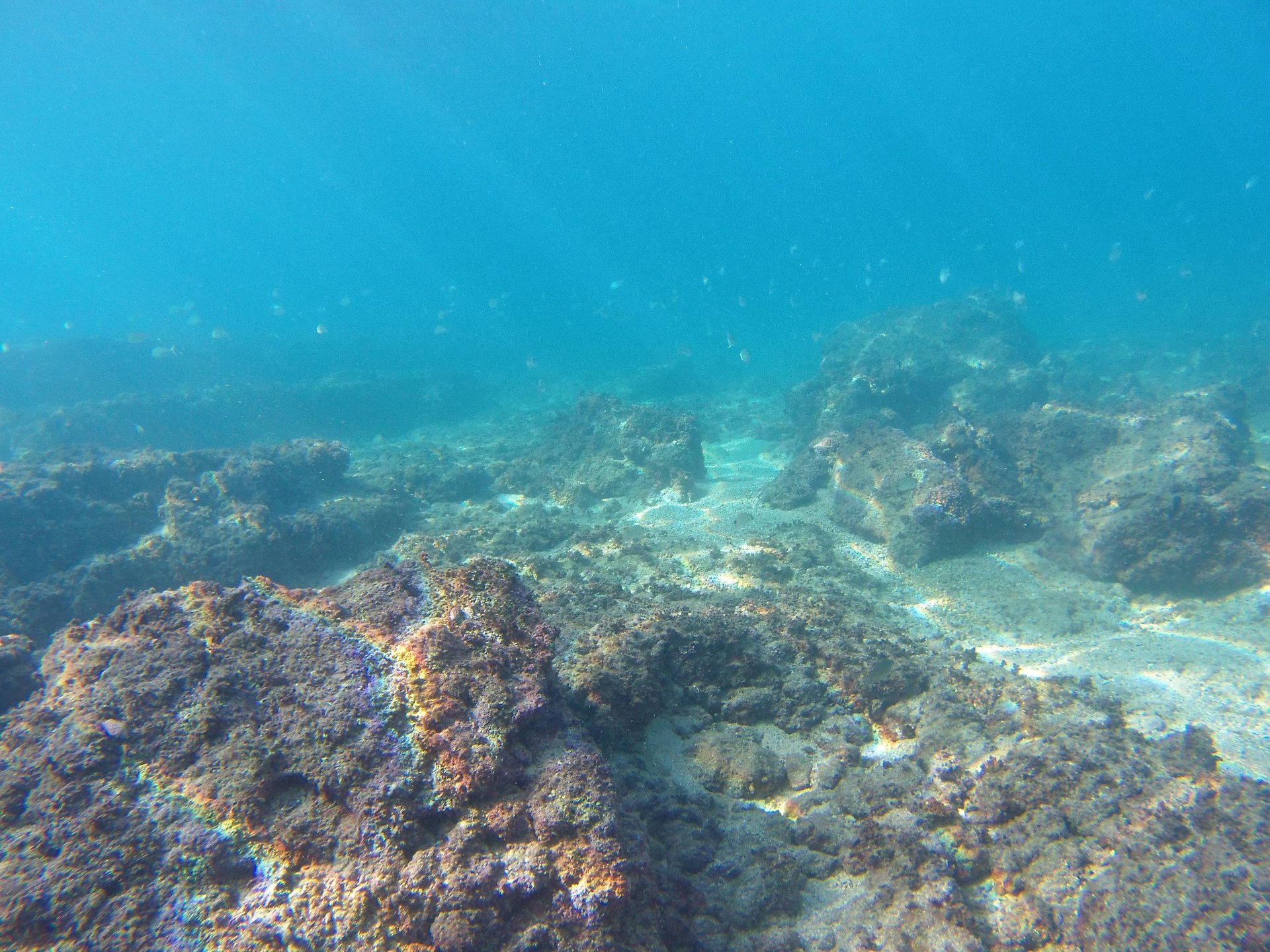
Ocean Literacy
Ocean literacy means understanding the ocean’s influence on you and your influence on the ocean.
It is a tool to enhance ocean knowledge, build connections in our lives, and support people to act in a positive and aware way for our ocean. Ocean literacy can be developed in schools, but also through non-formal education.
The goals of ocean literacy are not only knowledge exchange, but also behavior change and emotional connection to the ocean as a whole. Ocean literacy initiatives provide a way to promote sustainable practices, develop policy, foster responsible citizenship and encourage everyone to be involved in the future.
Ocean Literacy
1. Earth has one ocean with many features.
2. The ocean and life in the ocean shape the features of Earth.
3. The ocean is a major influence on weather and climate.
4. The ocean makes Earth habitable.
5. The ocean supports a great diversity of life and ecosystems.
6. The ocean and humans are inextricably linked.
7. The ocean is largely unexplored.
Principles of Ocean Literacy
7. The ocean is largely unexplored.
Principles of Ocean Literacy
1. Earth has one ocean with many features.
2. The ocean and life in the ocean shape the features of Earth.
3. The ocean is a major influence on
weather and climate.
4. The ocean makes Earth habitable.
5. The ocean supports a great diversity of life and ecosystems.
6. The ocean and humans are inextricably linked.
✷ We created infographics for Xiphias Diving club to educate scuba divers on the sea.
What do we do?
✷ We are recording all the marine life we observe in Byblos through our dives, and created local marine species posters.
✷ We are creating a documentary series about the sea in Lebanon.
✷ We share information and experiences with our family, friends, divers, strangers, customers...


✷ We collaborate with the Early Career Ocean Professionals Programme of the UN Ocean Decade on various projects and events.
✷ We organized ocean literacy workshops for the local youth municipal council of Byblos in collaboration with the municipality of Byblos, the municipality of Saint-Jean-Cap-Ferrat, l'Ecole de la Mer des Alpes Maritimes, and Mon Liban d'Azur.
✷ We created infographics for Xiphias Diving club to educate scuba divers on the sea.
What do we do?
✷ We are recording all the marine life we observe in Byblos through our dives, and created local marine species posters.
✷ We are creating a documentary series about the sea in Lebanon.
✷ We share information and experiences with our family, friends, divers, strangers, customers...


✷ We collaborate with the Early Career Ocean Professionals (ECOP) Programme of the UN Ocean Decade on various projects and events.
✷ We organized ocean literacy workshops for the local youth municipal council of Byblos in collaboration with the municipality of Byblos, the municipality of Saint-Jean-Cap-Ferrat, l'Ecole de la Mer des Alpes Maritimes, and Mon Liban d'Azur.
Nos Deux Rives (Our Two Shores) project
This project is a collaboration between Guardians of the Blue, Xiphias Diving, the Municipality of Jbeil-Byblos, the Municipality of Saint-Jean-Cap-Ferrat, l'Ecole de la Mer des Alpes-Maritimes, and Mon Liban d'Azur.
Our team in Byblos and the team in Saint-Jean-Cap-Ferrat organized the same 3 ocean literacy workshops for each city's youth municipal council. The objective was for both youth groups to gain knowledge and experience of their coast, while comparing the differences and similarities between our 2 shores of the Mediterranean Sea.
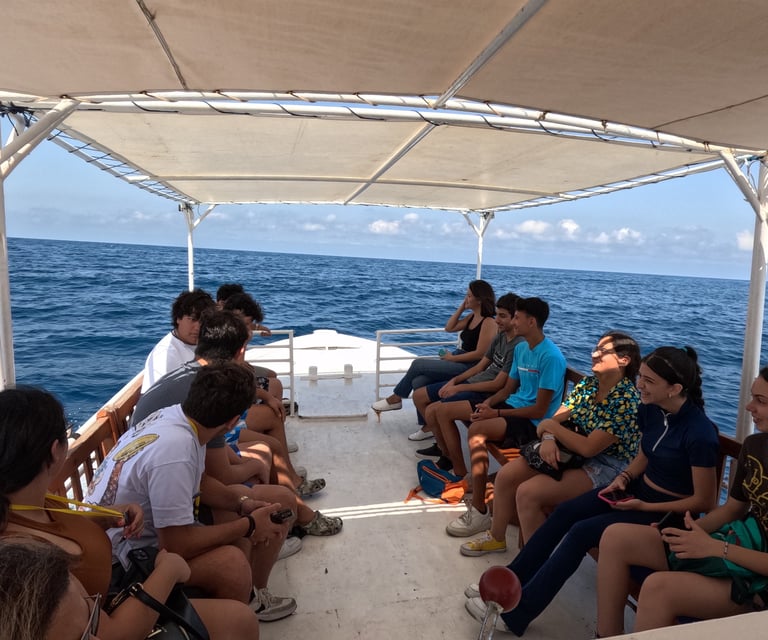

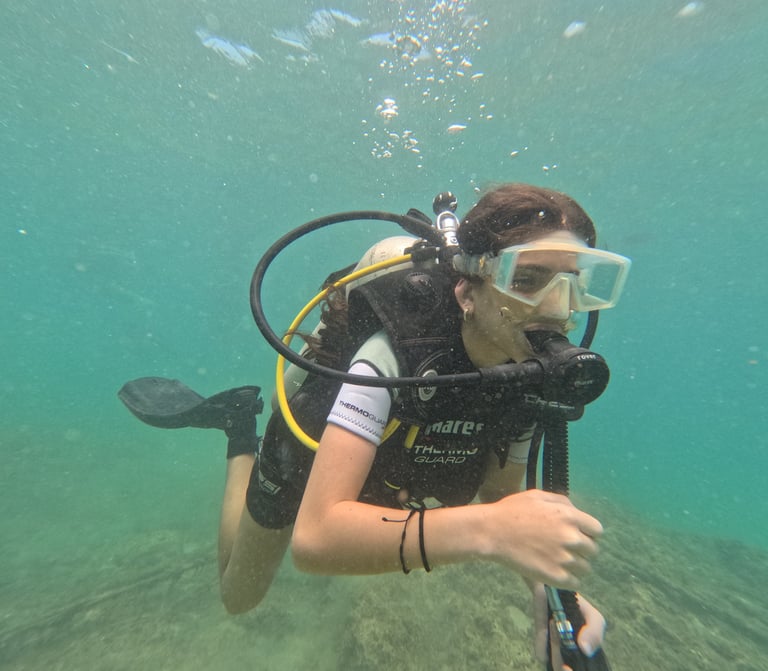

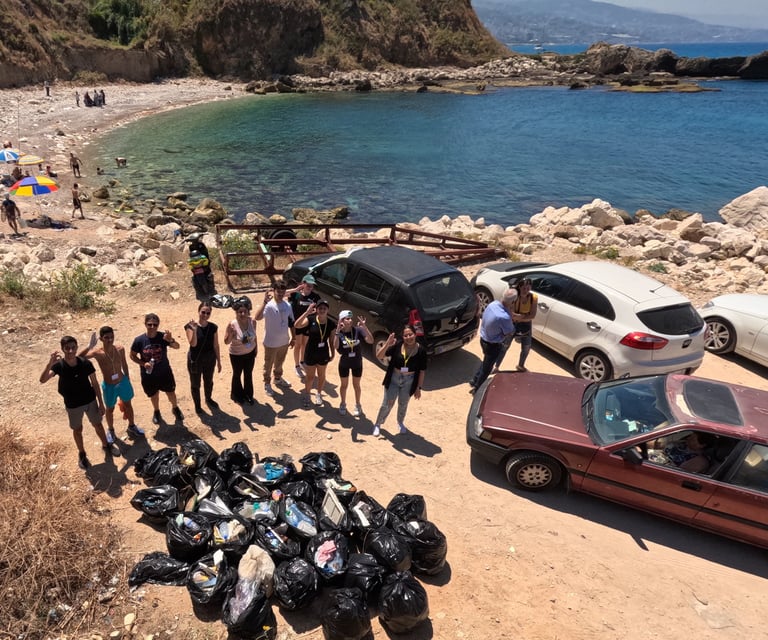

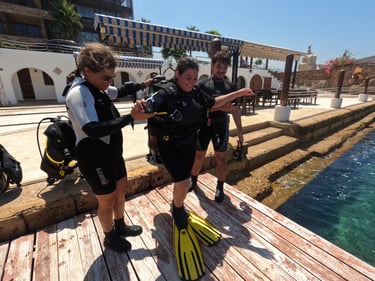

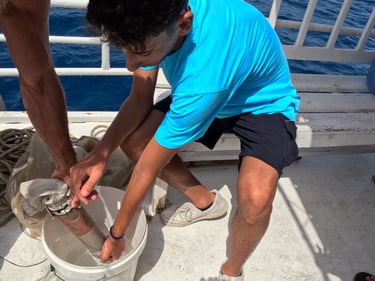

For the third workshop, we accompanied the youth council for their first scuba diving experience with Xiphias Diving. For some of them, the sea was scary, uncomfortable and unknown. But they faced their fears – and all of them made the underwater journey! It was wonderful to see them all come back to the surface with the biggest smiles and countless stories on what they saw, how they felt, and how beautiful everything was.
We talked about Lebanese coastal marine life, about invasive species, what it means when a species is endangered, how to be respectful of marine life, and more!
The first workshop was about marine pollution. We organized a beach cleanup, during which we collected 23 bags of waste in 30 minutes in the public beach of Byblos, soon-to-be part of the Byblos Marine Protected Area. We talked about the threats of marine pollution and best practices to reduce waste.
The second workshop was about plankton. We collected plankton samples on the coast, and then observed them at Saints Cœurs Jbeil: copepods, crustacean and jellyfish larvae, acantharia... It was fascinating! We talked about the different kinds of plankton and their role in the global ocean.
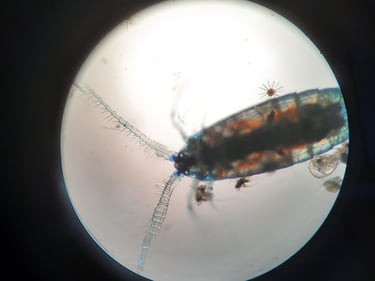

Want to know more ?
